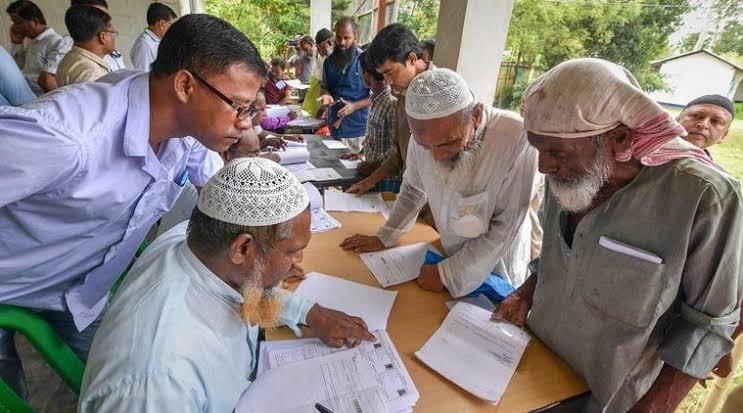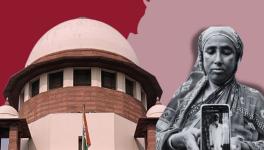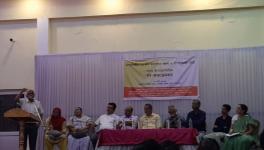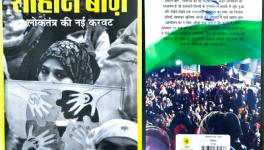Citizen Cannon: Why India’s Ugly NRC is Not Unique

With the controversy surrounding the NRC (National Register of Citizens), questions about citizenship seem to have resurfaced. The truth is that both authoritarian and democratic countries have weaponised citizenship for a long time, especially against racial, ethnic and religious minorities.
In January 2018, the United States Department of Justice revoked the citizenship of Baljinder Singh, a naturalised Indian American. Singh, who first arrived in the United States in 1991, was accused of misrepresenting his identity and failing to disclose a deportation order on an asylum application.
There are four ways to become a United States citizen: the most obvious is the guarantee provided under the 14th amendment of the Constitution which allows for birthright citizenship (you are a citizen if you were born in the United States). The other three, not as clearly and constitutionally protected, are citizenship through acquisition (by being children of American citizens), citizenship through derivation (once naturalised, parents or spouse can sponsor non-United States born family for citizenship) and citizenship through naturalisation (you can volunteer to be a citizen after fulfilling several requirements).
While Trump has frequently threatened to revoke birthright citizenship via presidential executive order, it is the process of naturalisation that has been, unbeknownst to many, under stealth attack.
Singh’s denaturalisation was the first case to be concluded under the new but little known Operation Janus program of the Department of Homeland Security. Begun during President Obama’s administration, the program has accelerated in pace and intent since Donald Trump came to office. A budget request by United States Immigration and Customs Enforcement for the 2019 fiscal year revealed that the Department intended to spend $207.6 million to investigate and review 700,000 naturalisation cases.
The main purpose of the operation is to identify individuals who may have committed naturalisation fraud, a broad term. It would be a fraud when citizenship was acquired even if naturalisation requirements were not met, such as requirements of residence, physical presence, lawful admission, good moral character and adherence to the United States Constitution. It is easy to see how something as subjective as good moral character or adherence to the Constitution can be easily manipulated by a government to target certain groups of citizens.
Further, Operation Janus specifically targets nationals of “special interest” countries, defined only as countries “that are of concern to the national security of the United States.”
United States history cannot be separated from the contentious history of who can rightfully be a citizen. Interesting, but not unsurprising, it is the Native Americans, Chinese, Japanese, Indians and other racial and ethnic minorities who were routinely and voluminously targeted. But full scale stripping of citizenship did not begin until the Naturalisation Act of 1906, the first law in United States history that provided for denaturalisation. Causes for denaturalisation under this act included fraud, racial ineligibility and lack of good moral character.
At the heart of the citizenship debates, writes sociologist Natalia Molina, has been the messy matter of racial ineligibility where only a white person could qualify to be a citizen and all others could be excluded. By the 1920s, the Supreme Court had ruled that neither Japanese nor Indians were white in Ozawa v. United States (1922) and United States v. Bhagat Singh Thind (1923).
Following the Ozawa and Thind rulings, Congress passed the 1924 Immigration Act, also called the “Asian Exclusion Act”, which legally restricted persons eligible for citizenship as to be those from a group other than white. Citizenship was extended only to whites and, reluctantly to peoples of African descent, leaving the status of anyone in between who sought citizenship ambiguous at best. While exact numbers—or racial composition—are unknown, it is approximated that between 1907 and 1973 the United States government recorded 22,026 instances of naturalisation cancellations.
The Immigration and Nationality Act of 1965 radically shifted the politics of immigration. The act abolished the race-based quota system and replaced it with a system that prioritised refugees, people with special skills and those with family members living in the United States. The nationality act allowed, for the first time non-Europeans, including Indians, to immigrate to United States legally. This new inclusive era of immigration also resulted in the government severely limiting denaturalisation with fewer than 150 cases since 1967.
But as Operation Janus strengthens under Donald Trump’s presidency, these numbers are likely to dramatically increase. Over the last two years, the total numbers of denaturalisation cases have doubled. As Singh’s case shows the targets will, once again, be racial, ethnic and religious minorities with the demarcation of “special interest countries”, perhaps a code phrase for countries importing high volume immigrants who are not non-white and religiously diverse such as India, China, Mexico and Philippines.
The parallels between NRC and Operation Janus are striking. Both efforts seem geared to keep minorities in a state of flux and fear with no assumption of permanence. In India, the pretext used for NRC is lack of documentation or proof of citizenship which prima facie is a dubious benchmark in a country where official documents are difficult to obtain and with high illiteracy rates. The scope is to make all Muslims feel like they are foreigners, even if they were never to be deported.
In the United States, the process of denaturalisation has been an unjust manipulation of documentation, for instance, Singh was accused of giving a false name upon his arrival even though it is well known that many asylum seekers arrive with no or little knowledge of English and their names are often misspelled by immigration officials. The current wording of the naturalisation law remains ominous. It states, “Discovery that a person failed to comply with any of the requirements for naturalisation at the time the person became a citizen renders his or her naturalisation illegally procured. This applies even if the person is innocent of any willful deception or misrepresentation.” The government can, thus, legally assess that a person is no longer a citizen even if he or she were innocent of any deceptive intent.
The case of the Rohingya in Burma, Uighurs in China, Coptic Christians in Egypt and Kurds in Turkey tell us parallel stories of exclusion. Saudis and Emiratis have had generations of Indians, Pakistanis and Filipinos living in their countries with no path to citizenship. If history is a lesson, the only way to counter such concerted efforts at exclusion, under the discursive umbrella of who is an ‘acceptable’ citizen, is to root out the ugly politics of racial, ethnic and religious nationalism.
Shakuntala Rao teaches at the Department of Communication Studies, State University of New York, Plattsburgh. The views are personal.
Get the latest reports & analysis with people's perspective on Protests, movements & deep analytical videos, discussions of the current affairs in your Telegram app. Subscribe to NewsClick's Telegram channel & get Real-Time updates on stories, as they get published on our website.
























